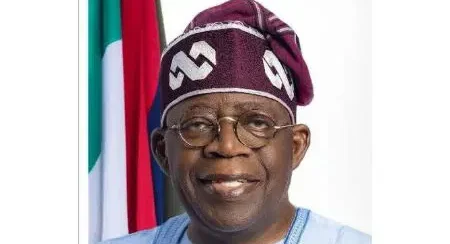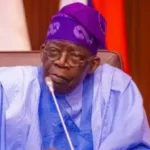The residents of Akwa Ibom, Rivers and Cross River have praised President Bola Tinubu’s bold economic and education reforms but expressed concerns over slow progress on security.
The residents spoke to the News Agency of Nigeria (NAN) while reacting to the second presidential anniversary speech. They said that as Nigerians celebrate the Democracy Day, the President should focus on security to ensure the safety of the lives of the people and their nation. In Akwa Ibom, Sen. Ita Enang, an All Progressives Congress (APC) Chieftain,
called on the President to organise a security summit aimed at addressing all security challenges confronting the nation. Enang, the former Senior Special Assistant to the President on National Assembly (Senate) and Niger Delta Affairs, advocated that retired low-ranking officers should be included in the meeting in order to harness solutions to insecurity.
He further explained that involving the officers who were in the battle field and who experienced the happenings would give an insight on how to tackle the nation’s security situation. According to him, most of the Generals, when they get to that level, they are not on the frontline and may not be able to get solution.
He, however, noted that the National Assembly had planned to hold security summit, involving the office of the National Security Adviser, National Intelligence Agency, DSS and the Ministry of Defence. “I am particularly excited for the attention on security, but I want to say that a lot still needs to be done on security,’’ he said.
Enang said that apart from the national security summit, the President should as a matter of urgency, use his position as ECOWAS chairman to convoke security summit while including the countries in the SAHEL region.
He said that the ECOWAS/SAHEL security summit would come with security strategies to curb border insecurity.
According to him, insecurity in Nigeria is insecurity in other African countries and the summit should address how to manage security challenges confronting the regions.
‘’If the Central Africa and the Sahel is not safe, Nigeria is not safe, So, while we fight insecurity within Nigeria, we should convoke conference to work with other regional bodies to ensure stability in those countries.’’
Enang also called on the federal government to check mining of solid minerals in some parts of the north as it posed great threat to security in the country.
He urged Nigeria to embrace ranching in taking care of cattles to avoid conflicts with farmers.
He applauded the President for his economic reforms which, he said, were putting the economy back on track, especially the sanitisation of Central Bank of Nigeria (CBN) and urged him to ensure the bank’s accountability and adherence to the rule of law.
On solid minerals sector, the senator urged the President to ensure that the solid mineral in the North belonged to the Federal Government and not to the Northern governors.
“The activities of the state government in Nasarawa, Niger, Plateau, Bornu, Katsina and Zamfara should be stopped.
“These governors have given foreigners the assess to harness these solid minerals, collecting all the monies, without the federal government sharing from it.
“The same value that is given to 13 per cent oil derivation should be given to the solid minerals, oil is also mineral, what is appliacable to crude oil should be to solid minerals,” he said.
Enang maintained that state governments should be stopped from allocating these land to the foreigners to explore the solid minerals.
According to him, if the Niger Delta was behaving like that, what do you think would have happened to the oil revenue; it is the solid minerals that are causing insurgency in the country,” he said.
He, however, commended President Bola Tinubu on his achievements so far but said that a lot is still needed to be done on security.
In his reaction, Mr Aniefiok Udonquak, a verteran journalist, said the President had demonstrated enough courage in tackling the country’s socio-economic challenges, adding that he initiated measures that was confronting the nation’s challenges.
He maintained that the President did not shy away from initiating measures to put the country back on track but regretted that the measures were yet to affect the common man.
‘’Prices of goods and services were still beyond the reach of many Nigerians; in his second anniversary speech, he mentioned mechanised farming as one of the initiatives to address the high cost of food items.
“Sadly in Akwa Ibom State, and maybe in some other parts of the country, the mechanised farming system has yet to be introduced.
He said that petrol subsidy removal had significantly reduced the scarcity of fuel while the prices, although coming down, was still expensive, having a ripple effect on transportation, living costs and prices of goods and services.
The veteran journalist said that a lot is still needed to be done in the area of security, noting that as the country was still grappling with security challenges, many Nigerians are losing their lives due to bandit attacks.
According to him, the President should take all necessary and legitimate measures to protect lives and property of Nigerians across the country; Nigerians should feel safe in their homeland.
Udonquak called on the President and the Federal Government to do everything possible to address the issue of the Japa syndrome in the country,
He lamented that skilled Nigerians were leaving the country in droves for a greener pasture abroad, and said that the situation should not be allowed to continue.
Similarly, in Rivers, Dr Don Okonkwo, an economist and policy analyst, acknowledged that the immediate hardship resulting from the removal of the petroleum subsidy was gradually easing.
Okonkwo, a lecturer at the University of Port Harcourt (UNIPORT) said that currently, Nigerians were beginning to see early signs of macroeconomic stability, which would be critical for long-term growth.
He further observed that the initial floating of the naira initially triggered volatility and a sharp increase in exchange rates against the dollar but said that some relative stabilisation had been witnessed in recent months.
On education, Okonkwo praised the Renewed Hope Education Initiative which, he said, had led to increased federal funding for public schools, the recruitment of over 100,000 teachers nationwide, and an expansion of vocational training programmes.
“Similarly, the introduction of the student loan scheme, which began full implementation in early 2025, has enabled thousands of tertiary students from low-income families to access interest-free loans to fund their education.
“The government also stepped-up investment in digital education and teachers’ training, with positive results already evident in national secondary school examination pass rates,” he added.
Mrs Comfort Eno, a secondary school principal in Port Harcourt, also attested to the improvements in the education sector, stating that the developments had boosted students’ motivation and academic performance.
“The digital tools we have received this year have made a significant difference,” she affirmed.
However, Dr Franklin Offor, Lead Consultant at a leading financial institution in Port Harcourt, scored the administration poorly in its corruption fight, decrying the continued prevalence of corruption and the government’s inadequate response to it.
“Anti-corruption agencies appear ineffective, with major embezzlement cases often going unpunished; this has eroded public trust and hindered economic development,” Offor stated.
In his contribution, the Civil Society activist, Chief Sherrif Briggs, said that although there have been few achievements over the past two years, the pace and distribution of progress remained uneven.
He pointed out the 2024 adjustment of the minimum wage to N70,000 which, he argued, had failed to yield the anticipated relief due to worsening economic conditions.
According to him, there is no doubt that some improvements have occurred in some key sectors, but the cost of living remains unbearable for millions of Nigerians.
“The government must accelerate implementation and remain accountable to the people,” Briggs concluded.
In Cross River, Mr Jonas Adie, a Chartered Accountant with a private firm also decried the sufferings of the average Nigerians who, he said, saw the future as bleak since they had not experienced any practical change.
He urged the politicians and those in government to stop living ostentatious lifestyles when the poor masses were made to adjust and manage their lives, and advised the government not to embark on white elephant projects.
He cited the Lagos-Calabar coastal highway which, he said, was gulping huge amount of money instead of rehabilitating old roads like the Calabar-Itu Road that also lead to Lagos.
Adie said, to him, there was no difference between the last administration and the present one, carpeting the anti-corruption fight in the current administration.
He said that with the gale of defections to the All Progressive Congress (APC), the administration should not allow criminals to become saints as they defected in order to curb the rate of corruption in the country.
Speaking further, Adie urged the present administration to ensure that an average Nigerian experienced changes in the prices of foodstuffs as well as feel safe in their homes, saying that insecurity should be urgently addressed.
On the electoral process, he called for a deliberate attempt to make elections more credible, urging the President to achieve more on healthcare, education, power supply, inflation rate among others.


